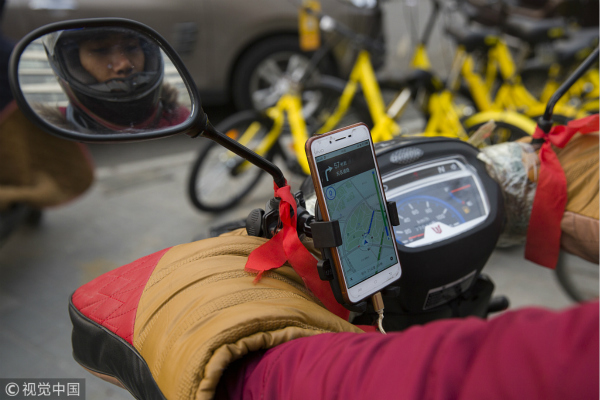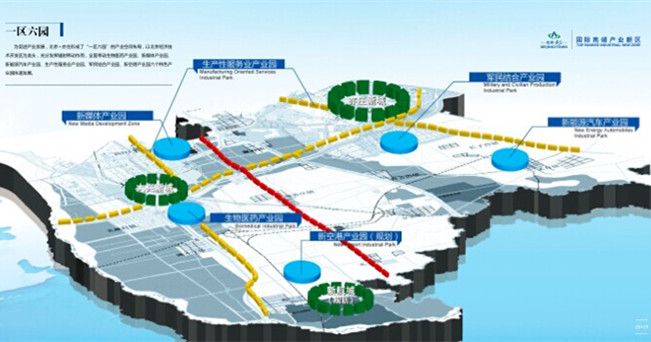Instant delivery sector off to flying start, but hurdles remain
( chinadaily.com.cn )
 |
|
A courier is on his way to deliver goods in Beijing on Feb 14, 2017. [Photo/VCG] |
Instant delivery has become one of investment darlings in express and logistics services over the first six months, but rising concerns on traffic accidents, information leakage and service quality continue to dog the sector.
The industry continues to see rush to attract capital chasing in the second half of the year. China's local courier service platform iShansong announced last Tuesday that it had completed its $60 million D1 series financing, and last month saw Chinese online grocery and delivery company Dada-JD Daojia raise $500 million from Walmart and JD, while Chinese city express delivery services platform UUPaotui secured 200 million yuan ($29.27 million) funding.
In July, China's express giant SF Express and e-commerce company Suning both started their instant delivery business, while Cainiao Network, Alibaba's logistics arm, took a controlling stake in instant logistics start-up Dianwoda.
China's instant delivery market keeps expanding as a result of "indolence economy" and fast living pace, Wang Xiaoping, associate dean of logistic school at Beijing Wuzi University, told Economic Information Daily.
Wang added that nearly 10 billion delivery orders were finished across the country last year, equivalent to 25 percent workload in traditional logistics. And the proportion is expected to increase to 50 percent, Wang predicted, as takeout business booms in China, instant delivery will maintain its growth momentum.
According to data from China's State Post Bureau, intra-city express service which requires short-time delivery will see a 30 percent growth in a few years, and its market value will reach more than 200 billion yuan in 2020.
However, intra-city instant delivery adopted crowdsourcing model based on third-party, loosening restrictions on couriers and erecting barriers on management, though the model helped rapidly tap into market at low cost and allocate personnel in a flexible manner.
In order to finish tasks within limited time as required by delivery companies, couriers sometimes run red lights, drive into reverse direction or answer a phone call while riding, which easily leads to traffic accidents, Wang said, adding customers' information, such as name, address, ordering platforms and times leak from time to time.
Liu Dacheng, deputy director of the internet industry research institute of Tsinghua University, said in an interview with Economic Information Daily that instant delivery still has a lot of problems in equipment, traceability and services, and there needs to be more interaction in real-time among couriers, receivers and information system.
Analysts said Technologies like big data and artificial intelligence should underpin the development of instant delivery; meanwhile, government should improve laws and regulations to bring more order into the industry.
 The Area with Six Parks
The Area with Six Parks Global Top 500
Global Top 500